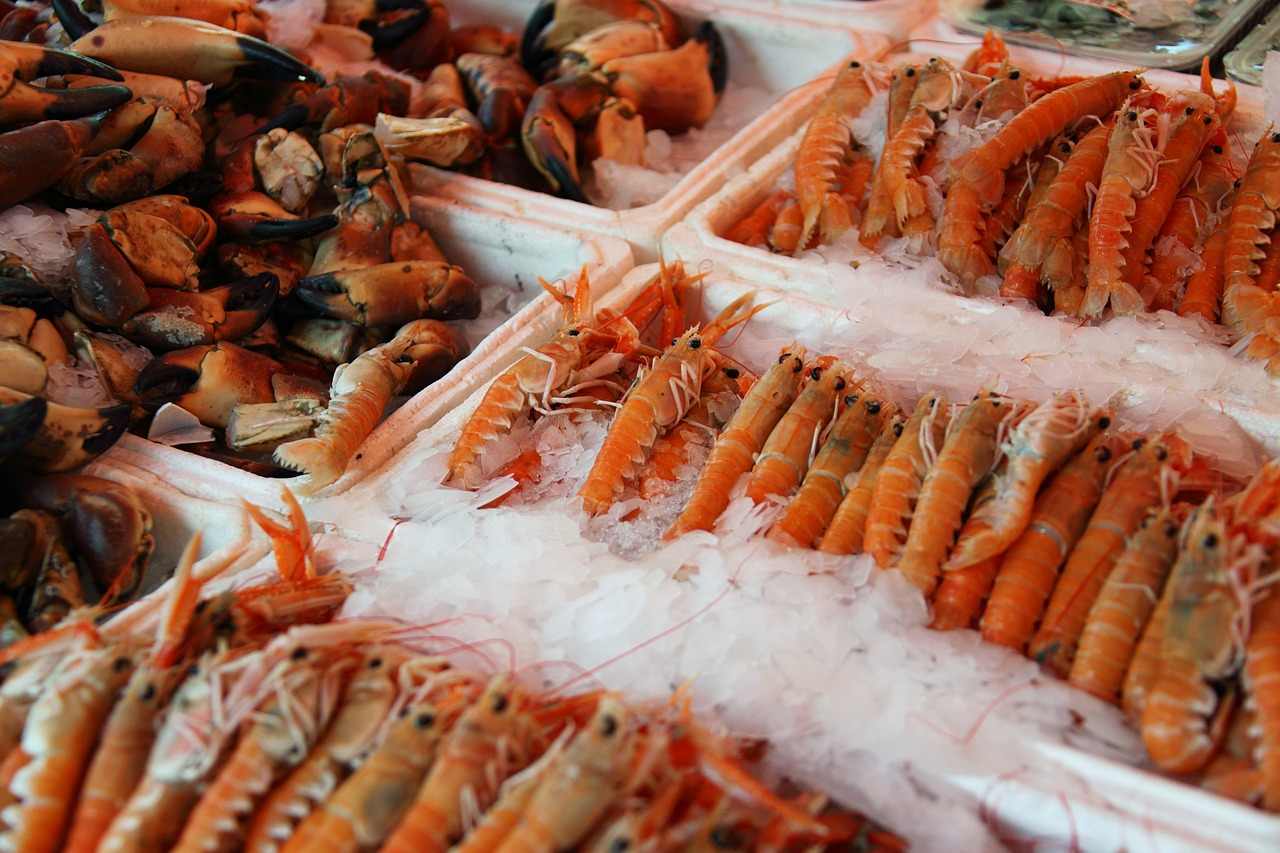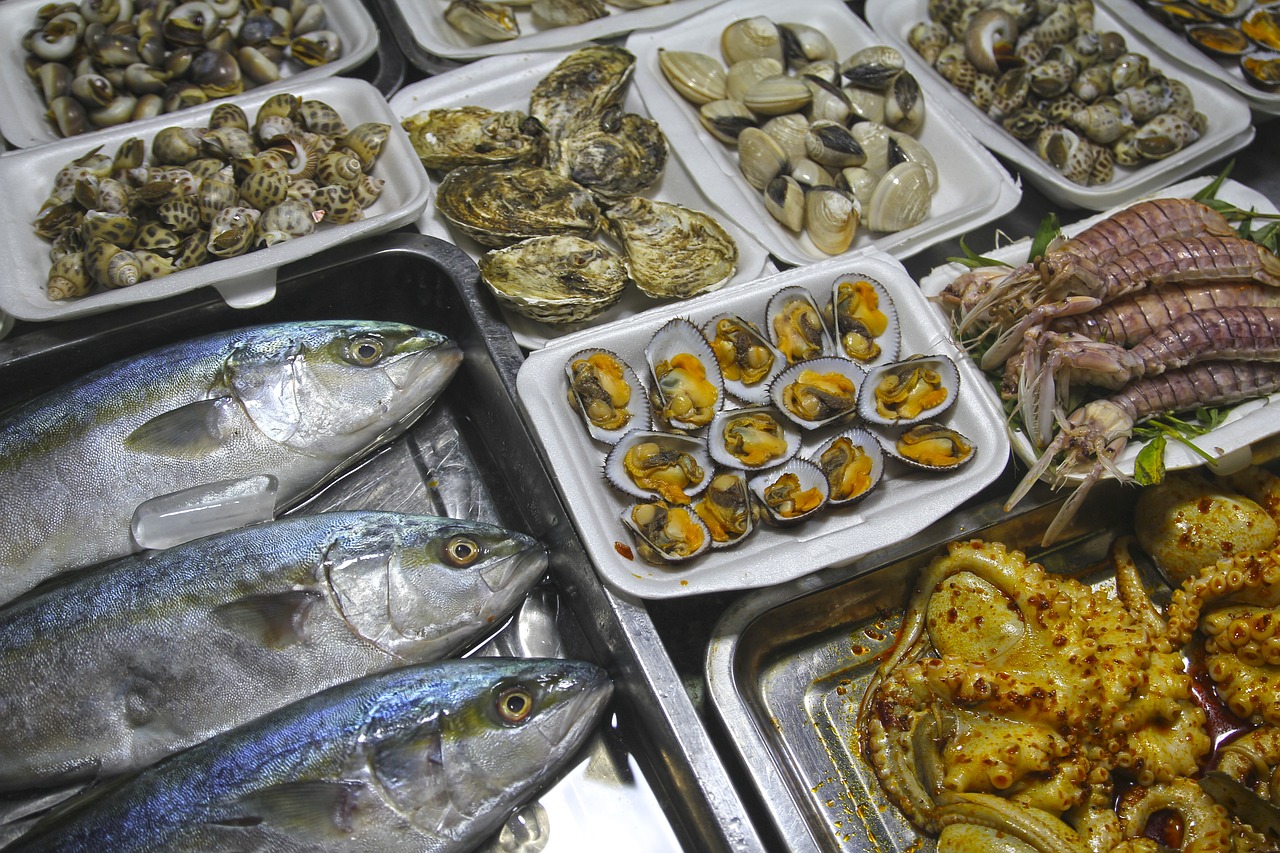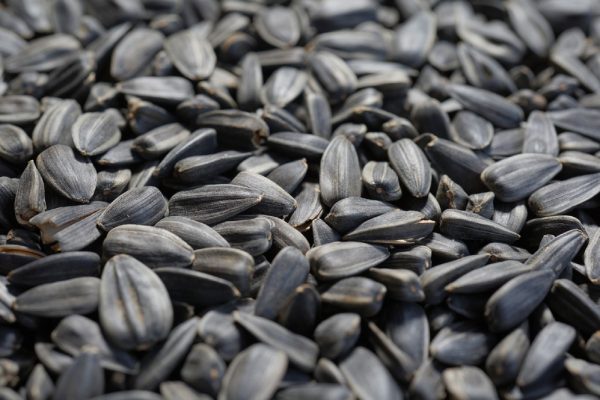Seafood is a delicacy and is loved by many people, but what about humans’ best friends? Can dogs also indulge in the delights of the ocean? The short answer is yes, dogs can eat seafood – but not all seafood, and even safe ones should always be served sparingly!
Let’s examine the potential benefits and risks of seafood for our beloved pups.

Is Seafood Safe for Dogs?
Dogs can safely enjoy certain types of seafood due to their nutritional benefits and palatability. Most provide canines with essential nutrients like high-quality protein, omega-3 fatty acids, and vitamins and minerals. These support various bodily functions, including muscle maintenance, skin and coat health, and cognitive function. Additionally, many pups find the taste and aroma of seafood quite appealing.
However, it’s extremely important to choose safe seafood options and cook them properly to mitigate potential risks. Always select high-quality, fresh seafood, and remove any bones or shells before serving to prevent choking hazards.
Benefits of Feeding Seafood to Dogs

Feeding seafood to dogs may offer numerous benefits. In fact, many commercial dog foods incorporate seafood into their recipes to ensure comprehensive nutrition. Seafood is rich in omega fatty acids, which are vital for heart health and immune function. Fish in particular is an excellent protein source, ideal for dogs allergic to other meats like chicken and beef, though it should only be fed in these individuals under veterinary guidance. Moreover, it’s low in saturated fat, reducing the risk of obesity and related health issues.
While seafood contains healthy fats like omega 3, which are easily digested and absorbed, dogs also often enjoy its flavor and texture. Finally, seafood is packed with essential vitamins and minerals, which are vital for various physiological functions in canines.
Potential Dangers of Seafood for Dogs
While seafood can offer nutritional benefits, potential risks are also associated with feeding it to dogs:
- Mercury contamination. Certain types of fish, particularly large predatory fish like tuna and swordfish, may contain high levels of mercury. Ingesting mercury can lead to mercury poisoning, which can cause neurological issues and adversely affect a dog’s health over time.
- Choking hazard. Certain aspects of seafood, such as fish bones and shellfish shells, pose a choking hazard to dogs. Consuming these sharp objects can lead to internal injuries or obstructions in the digestive tract.
- Allergic reactions. Just like humans, our canine companions can develop allergies to seafood. Signs of food allergies in dogs can manifest as vomiting, diarrhea, itching, and skin irritation.
If you are concerned about your dog after he or she has eaten seafood, we recommend contacting a veterinarian for further advice.
If you need to speak with a vet but can't get to one, head over to PangoVet. It's our online service where you can talk to a vet online and get the advice you need for your pet — all at an affordable price!

What Kind of Seafood Is Good for Your Dog?
When it comes to choosing seafood for your furry friend, know that not all options are equal. Some types offer more nutritional benefits and are safer for dogs to consume than others.
- Salmon: Rich in omega-3 fatty acids, salmon is an excellent source of protein and essential nutrients for dogs. It can support heart health, promote a shiny coat, and reduce inflammation.
- Shrimp: Low in calories and high in protein, shrimp can be a tasty occasional treat for dogs. Just be sure to remove the shell and tail before serving to prevent choking hazards.
- Cod: Cod is a mild-flavored fish that is easy to digest and can provide dogs with essential nutrients like protein and vitamin D. It’s also a great option for canines with sensitive stomachs.
When selecting seafood for your beloved dog, opt for high-quality, fresh options, and avoid those that are heavily processed or seasoned. Always remove bones, shells, and any potential choking hazards before giving seafood to your pup.


Conclusion
While seafood can offer valuable nutrients to dogs, you shouldn’t overdo it. Introducing small portions of cooked fish or shellfish can add protein, omega-3 fatty acids, and essential vitamins and minerals to your furry friend’s diet. However, you should be aware of the potential risks seafood poses to your pup, such as mercury contamination, choking hazards if the bones are not removed, and even allergic reactions. So, be sure to seek the advice of your veterinarian before incorporating seafood into your dog’s diet to avoid any bad reactions.
See also:
Featured Image Credit: karelnoppe, Shutterstock




















